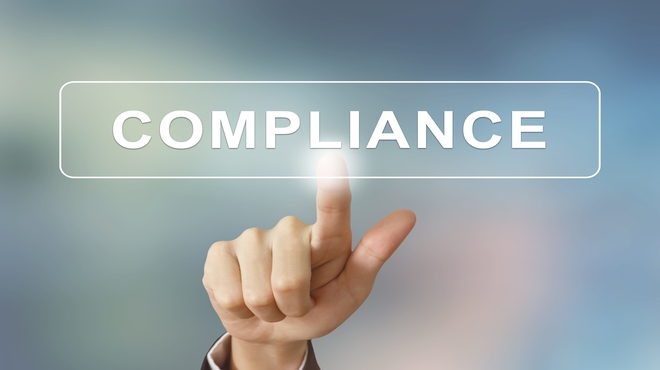Insolvency Petition: What Is It and How to File One?
April 07, 2024 हिंदी में पढ़ेंTable of Contents
What is Insolvency?
Insolvency is when an individual or an organization does not have enough financial liquidities, leading to the impossibility to repay debts or when an individual or organization does not acquire enough assets to pay off all the debt. Thus, insolvency is a difficult situation or position when an organization or individual is not able to repay the money owed. When an entity is unable to repay the money or is in debt, that entity is called insolvent. As stated above, there can be two types of insolvencies:
-
Balance sheet insolvency: When an entity does not acquire enough assets in order to clear all debts, this type of insolvency occurs.
-
Cash flow insolvency: This is when the debtor suffers a lack of financial liquidities that makes it impossible to repay the money owed, is called Cash flow insolvency.
What is the Purpose of Insolvency Law?
The main purpose of insolvency law is to help both the debtors and the creditors. The objective of Insolvency law is to maximize returns to the creditors through collective payment processes. Many insolvents are scared to file for insolvency and also are of the view that it is a debt recovery tool. However, Insolvency Proceedings are not exactly debt recovery tools and instead are collective in nature and are supposed to be beneficial for the entire body of creditors as well as debtors.
Is there a difference between Insolvency and Bankruptcy?
Even though insolvency and bankruptcy are used interchangeably, there is a slight difference between the two. Clearly, insolvency is a time of immense economic distress. Bankruptcy is an order by the court that declares that a certain entity, person, or organization is broke and does not have any financial funds and that it needs to incorporate certain measures in order to recover those debts. Thus, bankruptcy is essentially a legal procedure to solve the problem or condition of insolvency. You must take the help of a corporate or IBC lawyer if you or your company is insolvent and you need to file for bankruptcy.
The Four Pillars of IBC Infrastructure in India
In India, the first pillar of IBC's institutional infrastructure is Insolvency Professionals (IPs). An Insolvency Professional is one of the most important components of the IBC System. An IP is a licensed professional responsible for managing and overseeing the CIRP (Corporate Insolvency Resolution Process) or the liquidation process of the Corporate Debtor and also the resolution and bankruptcy process for individuals and partnerships. The Insolvency Professionals are aided by Information Utilities (IUs) for insolvency resolution, liquidation, and bankruptcy. IUs is the 2nd pillar of the institutional infrastructure. The Information Utilities are regulated and licensed repositories of information relating to the Corporate Debtor. They collect, collate, authenticate, and disseminate financial information to be used in insolvency resolution, liquidation, and bankruptcy proceedings. The 3rd pillar of the IBCs institutional infrastructure is adjudicating authorities (AAs) which are specialized tribunals tasked with ensuring that the insolvency resolution, liquidation, and bankruptcy process is being performed as per the IBC and related regulations. The 4th pillar is the Insolvency and Bankruptcy Board of India which acts as the regulator.
Who can file an Insolvency Petition?
An individual or a creditor can file an Insolvency Petition under certain scenarios. This has been stated below:
1. An Individual can file an Insolvency Petition if he/she is not able to repay his/her debts under the following conditions:
-
The debt amounts to more than 500 Rupees,
-
If the individual has been imprisoned or is under arrest for the execution of a money decree,
-
If there is a subsisting order of attachment against this person's property in execution of such decree.
2. A Creditor can file an insolvency petition under the following conditions:
-
The debt amount that is due to the creditor is more than 500 Rupees,
-
If the debt is already due or will be due at a future date,
-
If an Insolvency Petition has been filed within 3 months of the act of insolvency.
Where can an Insolvency Petition be filed?
An Insolvency Petition is to be filed at a District Court having jurisdiction i.e. where the debtor resides or carries on his/her business. If the case is that the debtor has been arrested or imprisoned, then, the Insolvency Petition can also be filed where he/she is in custody. The Court may appoint an interim receiver after the presentation of the insolvency petition is made, or before an order is made. Once an order of adjudication is made, the property of the & lsquo insolvent individual' vests with the receiver or the official assignee and thereafter becomes divisible among the creditors.
Distribution of Assets
The year 2016 witnessed the enactment of the Insolvency and Bankruptcy Code 2016 - much-needed legislation. It consolidates and amends the legal framework that had existed before the 2016 Code was enacted. Section 53 of the Code has established an ordered priority among creditors that determines the sequence in which outstanding debts are to be repaid. These are:
1. IRP and liquidation costs
2. Workmen's dues (for 24 months), and secured dues, if the security has been relinquished
3. Employees' dues (for 12 months)
4. Unsecured financial creditors
5. Government dues, and unpaid dues to secured creditors, if the security has been realized
6. Remaining debts and dues (which include, unsecured operational debts)
7. Preference shareholders
8. Equity shareholders.
Why do you Need a Lawyer?
Insolvency and Bankruptcy can be tricky to understand in India. The IBC laws are fairly new and have been rapidly changing and adapting to recent times. It is thus important to hire a lawyer if you want to file an Insolvency Petition as an individual who owes a debt or as a creditor. It is important to understand the law before dealing with it in Court. Consulting an Insolvency and Bankruptcy Lawyer is a wise step to take before delving into and dealing with an Insolvency Petition.
These guides are not legal advice, nor a substitute for a lawyer
These articles are provided freely as general guides. While we do our best
to make sure these guides are helpful, we do not give any guarantee that
they are accurate or appropriate to your situation, or take any
responsibility for any loss their use might cause you. Do not rely on
information provided here without seeking experienced legal advice first. If
in doubt, please always consult a lawyer.
The internet is not a lawyer and neither are you.
Talk
to a real lawyer about your legal issue.

Comments by Users
Advocate Ajay Kumar Nahar
After enactment of IBC 2016 previous act repealed ? Am I correct or not reply
Reply by LawRato
Yes, you are correct. The Insolvency and Bankruptcy Code (IBC) 2016 repealed the previous insolvency and bankruptcy laws in India, including the Sick Industrial Companies (Special Provisions) Act, 1985 (SICA) and the winding-up provisions of the Companies Act, 1956. The IBC was enacted with the aim of creating a comprehensive and time-bound insolvency resolution process for companies and individuals, which would help to address the problem of non-performing assets and promote the efficient use of resources.
Wilson and Company
Also Provincial Insolvency Act 1920, till relevant sections pertaining Individual in IBC r notified.
Reply by LawRato
As per Section 243 of the IBC, the Provincial Insolvency Act, 1920 stands repealed. However, the same provision states, that matters pending under the Provincial Insolvency Act, 1920 on the date of commencement of the IBC, shall continue to be governed by such Act as if the same had not been repealed.
Deep
An individual or a creditor can file an Insolvency Petition under certain scenarios (as mentioned above in the article). Which section talks about this?
Reply by LawRato
Section 14 of the Presidency Towns Insolvency Act, 1909 lay down the conditions on which a person may file an Insolvency Petition.
Related Articles
Corporate Law Articles
User Reviews
good article. Can you give some more detail on the issue.
thanks for the information
good work
Tells all the legalities about the subject. Good work.
nice article. Thanks for the information
good advice. Who can I contact for my legal issue?
very informative. Can you tell more about this
Very helpful in understanding the law.
nice work. Learned a lot. Thanks
Gave a clear understanding about my legal issue.
very informative.
very well written
thanks for the information
Gave me a very clear idea of the subject.
Thanks for the detailed article.
nicely written. Great work
VIEW ALL


 93+ Lawyers are online
93+ Lawyers are online 








